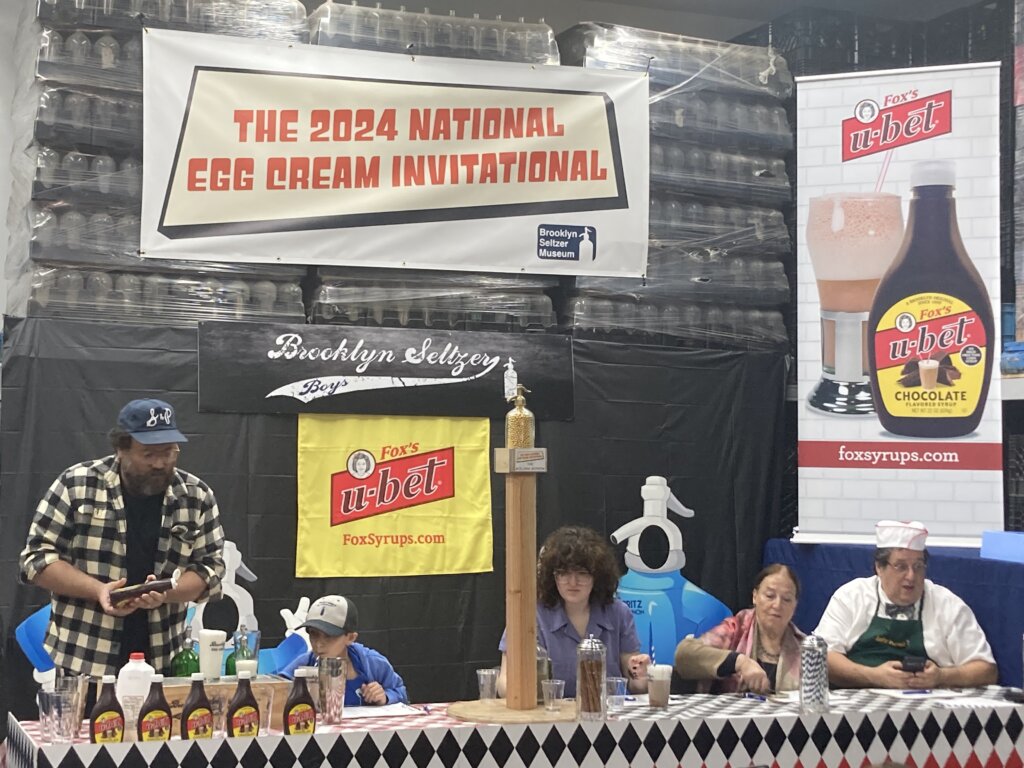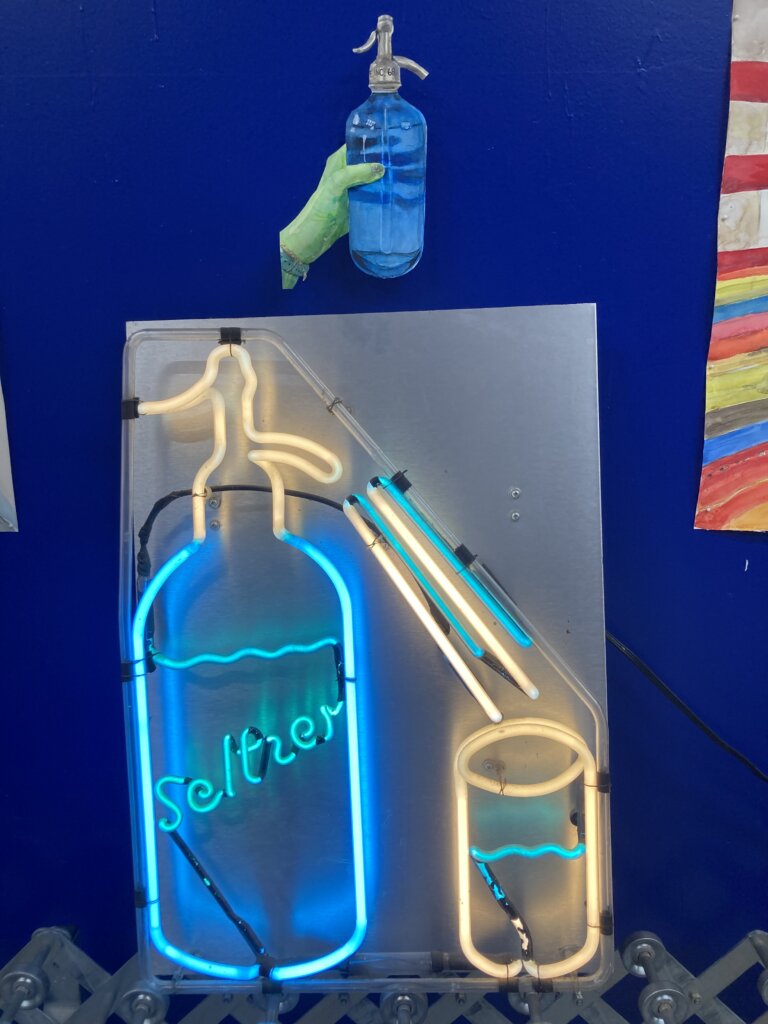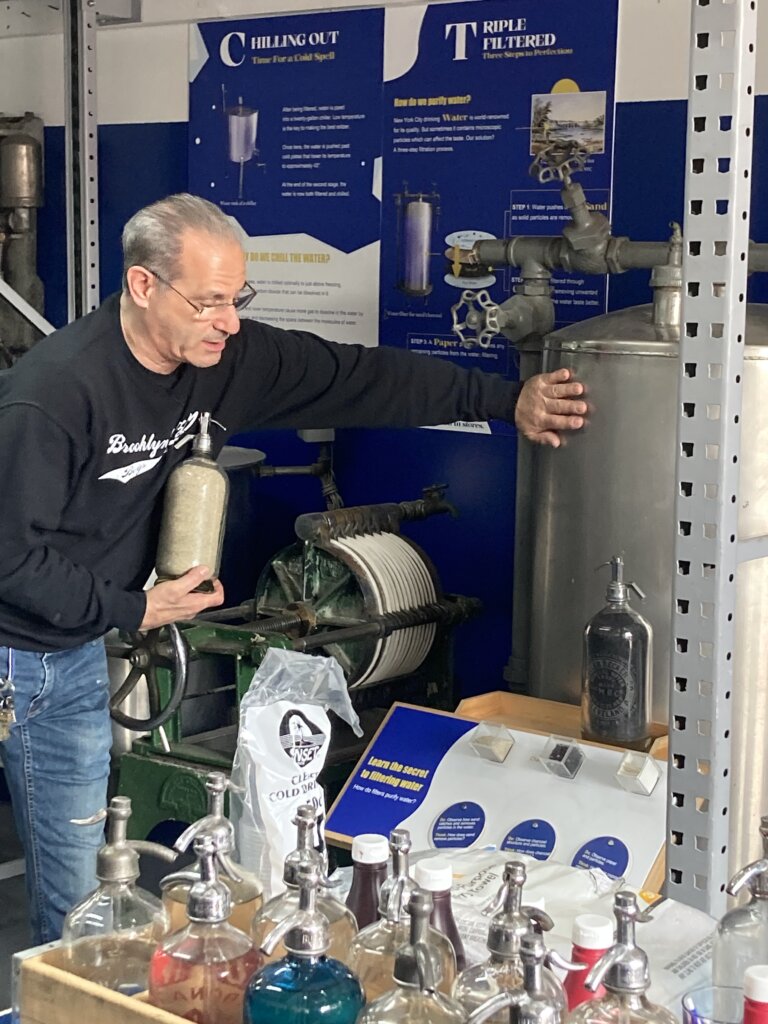Where can you find the best egg cream in the world? Not New York
Philadelphia’s Franklin Fountain won the first National Egg Cream Invitational with an unconventional take on the New York classic

Soda fountains were hugely popular in New York in the early and mid-1900s, and the New York egg cream was an iconic drink. Photo by H. Armstrong Roberts/ClassicStock/Getty Images
Some New Yorkers consider the New York egg cream — a fizzy concoction of seltzer, chocolate syrup, and milk — a local staple, like thin-crust pizza or hand-rolled bagels. Indeed, in early- and mid-1900s New York, the soda fountain was king, and perhaps nothing served there was as beloved as the deceptively named soft drink, which many believe was invented by a Jewish immigrant on the Lower East Side.
But, according to a panel of experts, the country’s best egg creams may be located in a scrappy city 100 miles southwest of New York.
Last weekend, on National Egg Cream Day (yes, that’s a thing), Philadelphia’s Franklin Fountain won the first annual National Egg Cream Invitational at the Brooklyn Seltzer Museum. The invitational pitted seven restaurants against each other in a contest to make the best version of the nostalgic soda.
Eric Berley, who co-owns Franklin Fountain with his brother Ryan, called the competition a “collegial” gathering of people “trying to bring back the magic of the soda fountain.” Other participants included Brooklyn Farmacy & Soda Fountain, Junior’s, Egger’s Ice Cream parlor, S&P Lunch and Lexington Candy Shop. Franklin Fountain was the sole representative from outside of Gotham. Each entry was rated on showmanship, presentation, taste and texture.

The Philadelphia soda shop impressed the judges with a recipe that incorporated homemade vanilla syrup instead of chocolate, along with two ingredients that are conspicuously absent from the classic New York egg cream: eggs and cream. Their version, which includes cream, vanilla syrup, egg yolks and seltzer, was inspired by a recipe by a Pittsburgh soda fountain operator published in an 1897 cookbook.
Franklin Fountain’s unconventional take was a gutsy move at a Brooklyn competition filled with New York restaurants, over a drink that New Yorkers are very particular about. Berley said that locals at the invitational had a long list of specifications for what made a good egg cream — among them, cold seltzer and near-frozen milk. To him, these commenters seemed to be saying, “how you make your egg cream is kind of a form of authenticity.”
But there is more than one way to make an egg cream. Berley points out that before what we know of as classic New York egg cream — featuring chocolate syrup — took off around the turn of the 20th century, diners around the country enjoyed a variety of drinks by the same name. “It wasn’t called a ‘New York egg cream,’” he said. “It was just an ‘egg cream.’”

At the shop, he and his brother Ryan Berley call their version of the drink aa “Philadelphia egg cream,” which they serve alongside a more traditional New York version. Though the 1897 recipe they use does not come from Philadelphia, Eric Berley thinks of it as a natural Philadelphia refreshment thanks to its raw eggs — a la Rocky Balboa — and its pretzel rod, which, in addition to being a classic egg cream garnish, is a nod to the region’s Pennsylvania Dutch food culture.
Berley joked with the judges about these Philadelphia reference points: “We tried to ham it up a little bit,” he said.
The sacrilegious ingredients in their Philadelphia egg cream do lend it a few advantages. “A real egg just kind of explodes the drink,” Berley said. “It gives a texture, and it’s more of an explosive volcano of suds that totally wowed the crowds.” The vanilla syrup created the quality of a light, bubbly egg nog, and the cream imparted body and a level of luxurious fat not present in ordinary milk.
For their victory, Franklin Fountain was awarded a “Golden Siphon” — a glass siphon bottle full of golden beads with some components spray-painted gold. Eric Berley gave it to his daughter, who will share it with her fourth grade teacher, a New Yorker who wants to teach students the art of making egg creams.

There’s more reason to believe that the competition will help keep young Northeasterners interested in frothy egg creams: Among the four judges, who included a soda fountain owner, a museum CEO, and a social media influencer, was Aidan Gomberg, a 9-year old boy whose family owns the Brooklyn Seltzer Museum.
Eric Berley said that the young Gomberg was valuable as a judge for his unfiltered commentary. “For instance,” Berley remembers, “my brother said, ‘You know, Philly loves New York.’ But he’s like, ‘Well, Philly might love New York, but I’m pretty sure that the Mets don’t love the Phillies.’”
There’s hope, then, for the next generation: the egg cream, and Philadelphia’s love-hate relationship with New York, are both here to stay.

















